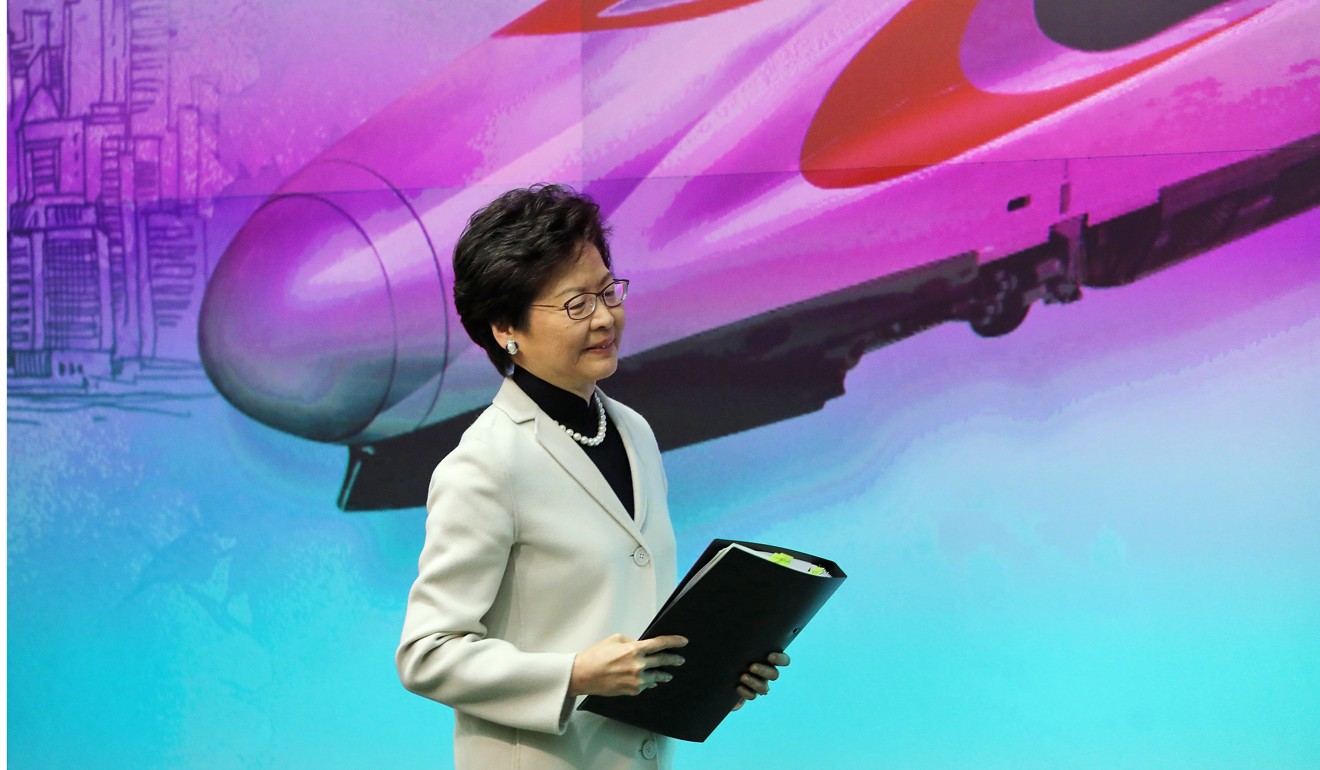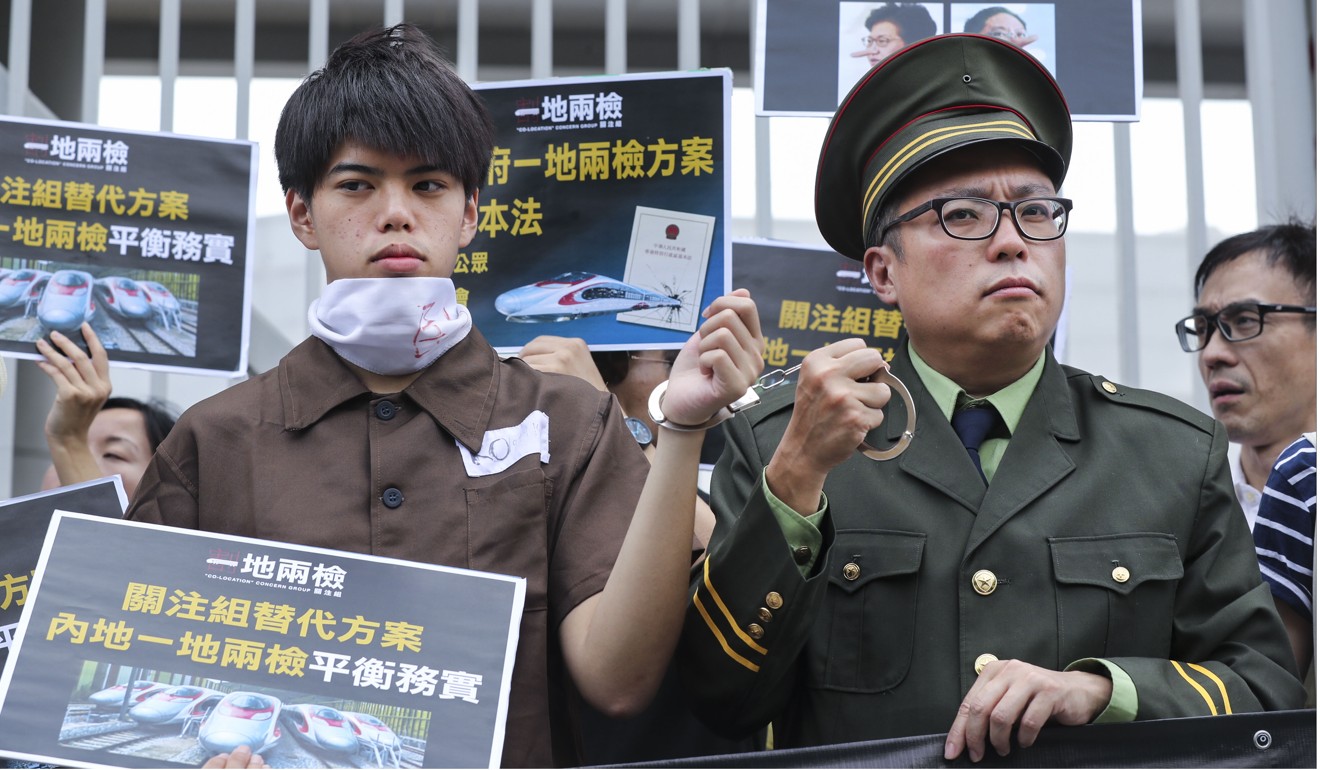
Stretching the Basic Law to fit Hong Kong’s high-speed rail plan puts ‘one country, two systems’ at risk
Cliff Buddle says there is no clear justification under the Basic Law for the wholesale application of mainland laws in a part of Hong Kong. Attempts to get around the city’s legal framework will have far-reaching consequences
The legal issues raised by plans for a high-speed railway linking Hong Kong with the rest of China go well beyond the creation of a convenient way to travel.
They concern the tensions between the different legal systems on either side of the border. The way the issues are resolved will have far-reaching implications for Hong Kong’s constitutional relationship with Beijing.
These tensions are not new. Eighteen years ago, when Hong Kong courts were first grappling with the consequences of the city’s return to China, I recall two appeal judges appearing shocked and offended by what were seen as novel arguments submitted on behalf of the city’s government.
The other remarked, rather dryly, that the government was submitting the court had “to do as we are told”.
The Bar Association said it was appalled by Beijing’s assertion that the rail link arrangements complied with the law “just because the [NPC Standing Committee] says so”. It added: “Such an unprecedented move is the most retrograde step to date in the implementation of the Basic Law, and severely undermines public confidence in ‘one country, two systems’ and the rule of law [in Hong Kong].”

What happens when Beijing acts in a way which appears to breach the Basic Law? The National People’s Congress is the highest organ of state power in China and, under the mainland system, its word is effectively law.
The rail link plans make perfect sense from the perspective of passenger convenience
The problem with the rail link plans is that they involve mainland officials applying mainland laws at part of the station in West Kowloon and on the trains when they are in Hong Kong. There does not appear to be any clear support for such an arrangement in the Basic Law.
Using mainland laws in Hong Kong is a highly sensitive issue because of the difference between the two legal systems. Hong Kong’s system provides stronger protection of rights and freedoms. Things which are considered a crime under mainland law are perfectly legal in Hong Kong. The final say in court cases lies with Hong Kong’s judiciary.
The Basic Law, therefore, places strict limitations on the application of national laws in Hong Kong. This is a key feature of the “one country, two systems” concept.
How Hong Kong’s Basic Law can serve the interests of all China

Any national law to be applied in the city must first be listed in Annex III of the Basic Law and then implemented through legislation or promulgation in Hong Kong. Only national laws covering areas outside the city’s autonomy can be applied. Just 13 have been listed in the annex, the latest concerning a law requiring respect to be shown for the national anthem.
It is difficult to see how the wholesale importation of mainland laws to the rail link in Hong Kong can comply with this part of the Basic Law.
The Basic Law ... places strict limitations on the application of national laws in Hong Kong
Arguments put forward to support the arrangements refer to other parts of the Basic Law concerning the power of the city’s government to manage the land, encourage investment and promote trade. The rail link involves all of these matters, but that does not overcome the clear restrictions imposed by the Basic Law.
It has been argued that the restrictions only apply when a national law is applied to all of Hong Kong, rather than just a part of it. But that is not a convincing argument. Nor does it provide much reassurance to Hong Kong people, who are left wondering which part of the city might be next.
In a bid to remove doubts, the areas where mainland law is to be applied are to be deemed part of the mainland even though they are in Hong Kong. Again, this looks like a convenient way of going around the law, rather than complying with it.
Constitutions, like the Basic Law, are worded in broad terms. They should, where possible, be interpreted in ways which allow them to move with the times. But the attempts to place the rail link arrangements within the framework of the Basic Law stretch the wording too far. The arguments put forward to support the legal basis for the plan are weak.
Hong Kong people look to the Basic Law for reassurance that their rights will be protected, their way of life maintained
Local legislation will now be passed to implement the arrangements. That legislation must comply with the Basic Law. If it does not, Hong Kong’s courts have a duty to strike it out.
The rail link plans make perfect sense from the perspective of passenger convenience and our integration with the rest of China. But the legal path which has been chosen is one which risks undermining confidence in the “one country, two systems” concept.
It is not a question of disrespecting China’s legal system. Hong Kong people look to the Basic Law for reassurance that their rights will be protected, their way of life maintained, and the city’s high degree of autonomy from Beijing preserved. That only works if the Basic Law means what it says and is respected by all.
Cliff Buddle is the Post’s editor of special projects

